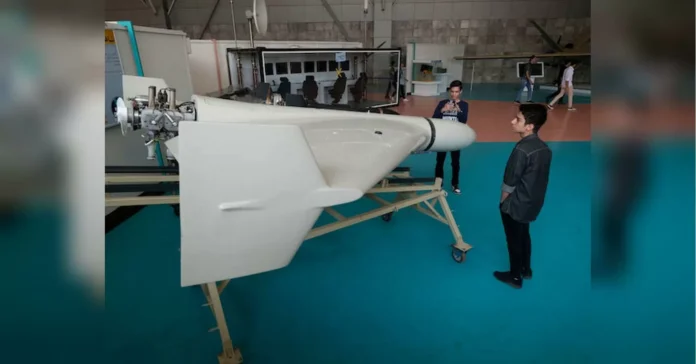Sanctions Should Limit the Export of Components from the EU Used in the Production of Drones and Ballistic Missiles
In recent years, the use of drones and ballistic missiles has become increasingly prevalent in conflicts around the world. These weapons, which can be operated remotely and have the ability to strike targets with precision, have been used by both state and non-state actors, causing significant damage and loss of life. As the demand for these weapons continues to rise, it is important for the international community to take action to limit their proliferation. One effective way to do this is through targeted sanctions on the export of components used in their production.
The European Union (EU) is a major player in the global arms market, with many of its member states producing and exporting components used in the production of drones and ballistic missiles. These components include advanced navigation systems, sensors, and guidance systems, which are essential for the accuracy and effectiveness of these weapons. By limiting the export of these components, the EU can play a crucial role in preventing the spread of these dangerous weapons.
One of the main reasons for imposing sanctions on the export of components used in the production of drones and ballistic missiles is to prevent their use in conflicts that violate international law. These weapons have been used in targeted killings, often without proper authorization or oversight, resulting in civilian casualties and human rights violations. By limiting their production and availability, the EU can help prevent the use of these weapons in such unlawful actions.
Moreover, the use of drones and ballistic missiles has also raised concerns about their potential use in terrorist attacks. Non-state actors have been known to acquire and use these weapons, posing a serious threat to global security. By limiting the export of components, the EU can prevent these weapons from falling into the wrong hands and being used for malicious purposes.
In addition to the security implications, the production and use of drones and ballistic missiles also have significant environmental and humanitarian consequences. These weapons have been responsible for the destruction of infrastructure, displacement of populations, and contamination of land and water resources. By limiting their proliferation, the EU can contribute to the protection of the environment and the well-being of affected communities.
Some may argue that imposing sanctions on the export of components used in the production of drones and ballistic missiles would harm the EU’s economy and its defense industry. However, it is important to note that these sanctions would be targeted and limited to specific components, rather than a blanket ban on all exports. This would allow the EU to continue its trade and cooperation with other countries, while also sending a strong message against the use of these weapons.
Furthermore, the EU has a responsibility to uphold its values and principles, including the promotion of peace and security. By limiting the export of components used in the production of drones and ballistic missiles, the EU would be taking a proactive stance in preventing the spread of these weapons and promoting international peace and security.
It is also worth noting that the EU has a legal framework in place to impose sanctions on the export of arms and related materials. The EU Common Position on Arms Export Control, adopted in 2008, sets out criteria for the assessment of export licenses, including respect for human rights and international law. By using this framework to limit the export of components used in the production of drones and ballistic missiles, the EU would be acting in accordance with its own principles and obligations.
In conclusion, the use of drones and ballistic missiles in conflicts has raised serious concerns about their impact on security, human rights, and the environment. The EU, as a major producer and exporter of components used in their production, has a responsibility to take action to limit their proliferation. Imposing targeted sanctions on the export of these components would be a crucial step in preventing their use in unlawful actions and promoting international peace and security. The EU should use its legal framework and work with other countries to implement these sanctions and send a strong message against the use of these weapons.

